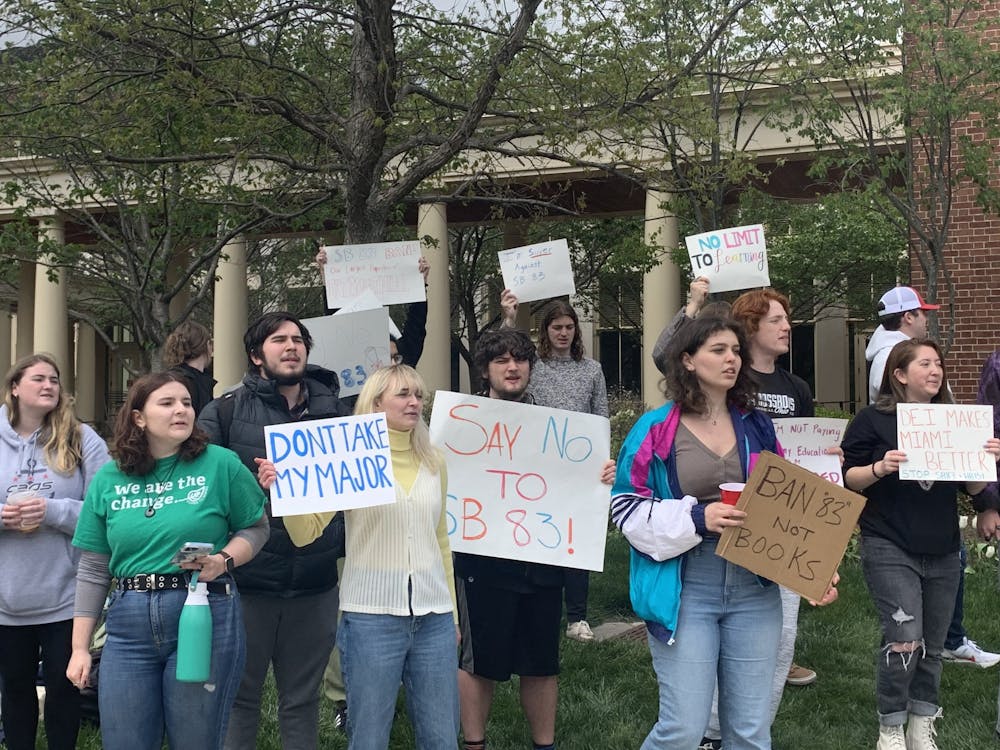On Wednesday, Dec. 6, the Ohio House of Representatives Higher Education Committee voted to pass the Ohio Higher Education Enhancement Act, also known as Senate Bill 83 (S.B. 83) in an 8-7 vote. The bill will go to the entire state House for a vote. If it passes there, it will head to Governor Mike DeWine’s desk for final approval.
The bill would prohibit colleges from establishing mandatory diversity, equity and inclusion (DEI) programs, allow tenured professors to be fired, modify collective bargaining agreements, and require students to take a course in the subject area of American government or history. It would also prevent professors from taking stances in the classroom on controversial topics, which include issues such as climate policies, electoral politics, foreign policies, DEI and immigration, marriage or abortion policies.
State Senator Jerry Cirino (R-Kirtland), who sponsored the bill, said the bill aims to “rescue higher education,” but professors, students and others disagree. In previous reporting by The Miami Student, Anne Whitesell, a political science professor at Miami University, said in an interview in October that she hopes to see the “controversial” label removed from the bill.
“I’d like to see the whole bill scrapped,” Whitesell said. “However, one of the things that is especially concerning about it is that it labels issues as ‘controversial.’ The whole idea of being in a college classroom is that you should be able to talk about issues that might be uncomfortable and explore new ideas.”
In April, students, faculty and staff protested outside of Miami’s Armstrong Student Center in opposition to the bill.
After passing the Senate in May, the bill has undergone many revisions, including the removal of a provision that would have prevented university employees from being able to strike, the addition that course syllabi should be made publicly available online and the prevention of unions from negotiating on tenure.
The committee, which was scheduled to meet on Dec. 6, was not supposed to hear S.B. 83, but the agenda was amended to include the fourth hearing and a possible vote around 11:30 a.m. on Dec. 5, with less than 24-hour notice. The representatives heard no oral testimony at the meeting, but 10 organizations submitted written testimony as interested parties.
The committee was also scheduled to hear House Bill 183, which would require Ohio K-12 schools and colleges to designate restrooms, locker, shower and changing rooms for the use of “a single-sex,” with sex defined as what is listed on an individual’s birth certificate. The bill was also supposed to have its fourth hearing, but the committee adjourned before heading to a vote.




